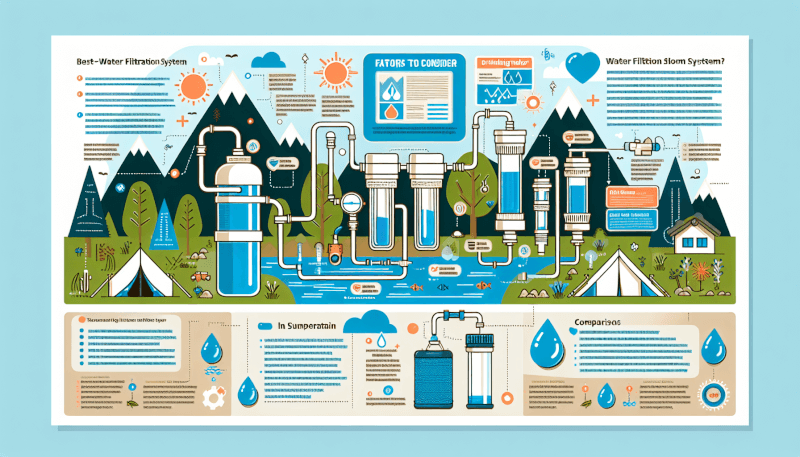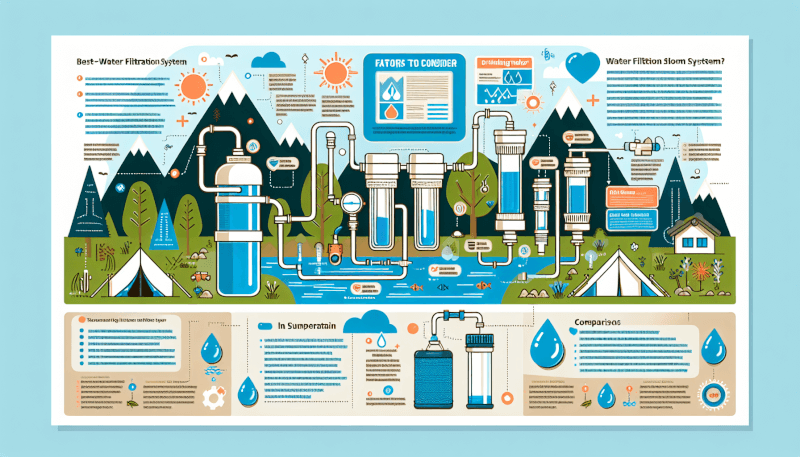Planning a camping trip in the great outdoors? One crucial decision is ensuring you have access to safe drinking water. With the multitude of options available, it can be overwhelming to choose the right water filtration system for your needs. But fear not! In this article, we will guide you through the process of selecting the perfect water filtration system for your camping adventure. From considering your water source and filtration method to evaluating portability and ease of use, we’ve got you covered. So, let’s dive in and make sure you’re well-equipped with clean, refreshing water for your next camping trip.
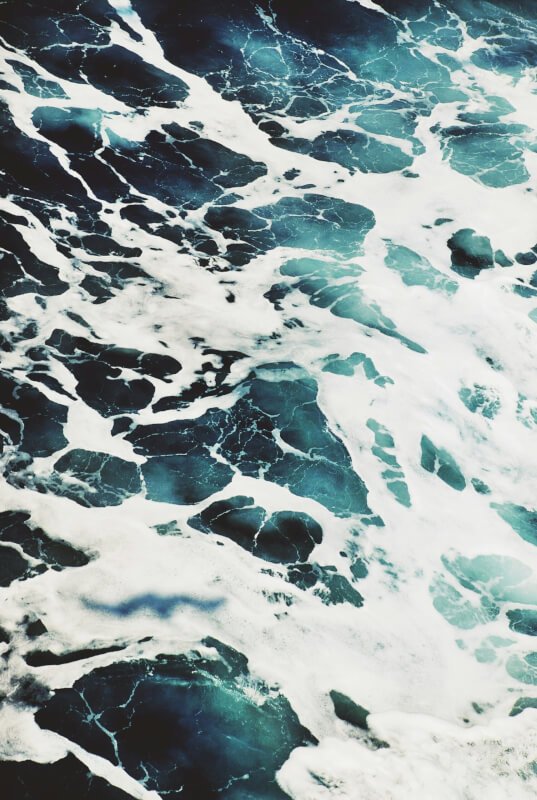
Consider the Water Source
Assess the Quality of the Water Source
Before choosing a water filtration system for your camping trip, it’s important to assess the quality of the water source you’ll be relying on. Different water sources can have varying levels of contaminants, so it’s crucial to know what you’re dealing with. Look out for signs of pollution, such as visible debris or discoloration, which may indicate the presence of harmful substances.
Identify Potential Contaminants
Once you’ve assessed the quality of the water source, identify potential contaminants that might be present. These can include bacteria, viruses, protozoa, chemicals, and heavy metals. Each water filtration system has different capabilities in removing specific contaminants, so understanding what you need to filter out will help you choose the most suitable option.
Understand the Water Source Location
In addition to assessing the quality and identifying potential contaminants, it’s important to understand the location of the water source. Factors such as proximity to human activity, industrial areas, or agricultural practices can influence the quality of the water and the potential contaminants it may contain. Consider the specific location to determine the level of filtration required for safe drinking water.
Evaluate Filtration Methods
Learn About Different Filtration Methods
Before making a decision, take the time to learn about the various water filtration methods available. Some common methods include activated carbon filtration, reverse osmosis, ceramic filters, and UV purification. Each method has its own strengths and weaknesses, so understanding how they work is essential in choosing the right filtration system for your camping trip.
Compare the Effectiveness of Filtration Methods
Once you have a good understanding of different filtration methods, compare their effectiveness in removing specific contaminants. Some methods may be better suited for removing bacteria and viruses, while others excel at removing chemicals or heavy metals. Consider the potential contaminants present in your water source and prioritize the methods that will give you the best results.
Consider the Speed and Convenience of Filtration Methods
While effectiveness is crucial, it’s also important to consider the speed and convenience of filtration methods. Some methods may require more time and effort to filter water, which could be a limiting factor during a camping trip where time and resources are often limited. Balancing speed and convenience with filtration effectiveness will help you find a filtration method that suits your needs.
Determine the Water Needs
Estimate the Quantity of Water Required
To choose the right water filtration system for your camping trip, estimate the quantity of water you’ll need. Consider factors such as drinking, cooking, and cleaning to determine how much water you’ll consume daily. This estimation will help you select a system with an adequate water flow rate and capacity to meet your needs.
Consider the Duration of the Camping Trip
The duration of your camping trip will also impact your water filtration needs. If you’re planning a short weekend getaway, you may be able to get by with a smaller, portable filtration system. On the other hand, for longer trips, you may need a system that can filter larger quantities of water or one that allows for easy filter replacement or maintenance.
Account for the Number of People
Lastly, consider the number of people in your camping group. If you’re camping solo, a smaller filtration system may suffice. However, for larger groups, it’s important to choose a system that can handle the increased demand for filtered water. Taking into account the number of people will ensure that everyone has access to clean drinking water throughout the trip.
Assess Portability and Weight
Evaluate the Size and Weight of the Filtration System
When camping, portability and weight are crucial factors to consider when choosing a water filtration system. You’ll want a filtration system that is compact and lightweight, making it easy to carry in your backpack or camping gear. Consider the dimensions and weight of the system to ensure it won’t be a burden while hiking or moving around the campsite.
Consider the Portability and Convenience
In addition to size and weight, consider the overall portability and convenience of the filtration system. Look for features such as a built-in carry handle or straps, as well as easily collapsible or foldable designs. These features will make it simpler to transport and set up the system, ultimately enhancing your camping experience.
Choose Lightweight and Compact Options
To enhance portability, prioritize lightweight and compact water filtration options. Look for systems that utilize space-efficient designs and materials that are both durable and lightweight. It’s essential to strike a balance between portability and filtration capacity to ensure that you have a system that meets your needs without compromising on convenience.
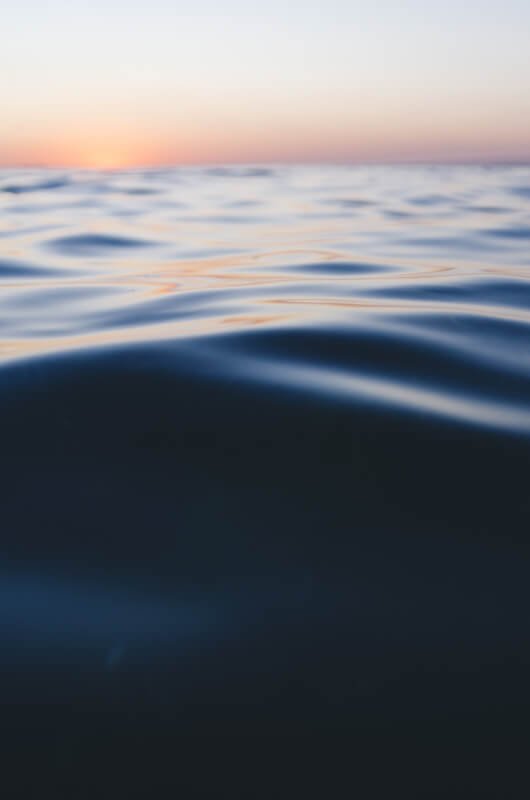
Review Filter Lifespan and Maintenance
Check the Longevity of Water Filters
Before purchasing a water filtration system, check the longevity of the filters it uses. Different filters have varying lifespans, and it’s important to choose one that aligns with the duration of your camping trip. Some filters may last for weeks or even months before needing to be replaced, while others may require more frequent replacement. Consider the filter lifespan to avoid running out of clean water during your trip.
Consider the Replacement Frequency
Alongside the filter lifespan, consider the frequency and ease of filter replacement. Some filtration systems allow for quick and effortless replacement, while others may require disassembling and cleaning multiple components. Assess the filter replacement process to ensure that it’s convenient and doesn’t disrupt your camping experience.
Evaluate the Ease of Cleaning and Maintenance
In addition to filter replacement, consider the overall ease of cleaning and maintaining the filtration system. Look for systems with removable and washable components, as these are generally easier to clean and maintain. Regular cleaning and maintenance will prolong the lifespan of your system and ensure optimal filtration performance throughout your camping trip.
Understand Filtration Rates
Determine the Filtration Rate Needed
The filtration rate, or flow rate, is an important factor to consider when selecting a water filtration system. It refers to the volume of water that can be filtered within a given time period. Determine the filtration rate that meets your water needs based on the estimated quantity of water required for drinking, cooking, and other activities. This will help ensure that you have an adequate supply of filtered water during your camping trip.
Consider the Flow Rate of Different Filters
When comparing filtration systems, pay attention to the flow rates of different filters. Some filters may have faster flow rates, allowing for quicker access to clean water. However, it’s important to find a balance between speed and the system’s ability to effectively remove contaminants. A faster flow rate doesn’t necessarily guarantee the same level of filtration effectiveness.
Evaluate the Efficiency and Speed of Filtration
Efficiency and speed should be taken into account when choosing a filtration system. While a fast filtration rate is desirable, it’s equally important to ensure that the system effectively removes contaminants and provides safe drinking water. Consider the balance between filtration speed and efficiency to find a system that meets your camping trip requirements.
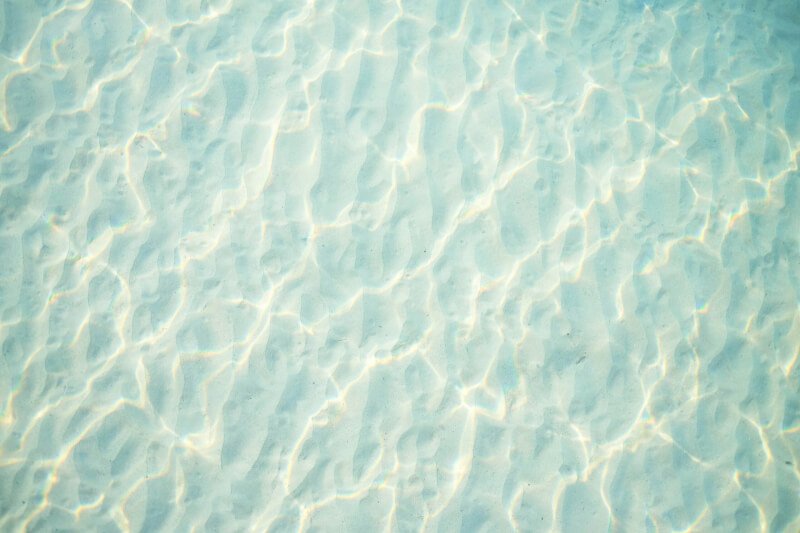
Consider Water Taste and Odor
Prioritize Filtering Elements for Taste and Odor
Water taste and odor can greatly impact your drinking experience while camping. To address this, prioritize filtration systems with specific filtering elements designed to remove taste and odor-causing compounds. Look for activated carbon or charcoal filters, as they are known for their ability to enhance the taste and smell of the filtered water.
Read User Reviews on Water Taste and Odor
To gain a better understanding of how different water filtration systems perform in terms of taste and odor removal, read user reviews and testimonials. Other campers’ experiences can provide valuable insights into how effective a particular system is at improving the taste and odor of the water. Pay attention to reviews that specifically mention water taste and odor to make an informed decision.
Choose Filters with Effective Taste and Odor Removal
Based on user reviews and the specific filtering elements used, choose a filtration system that is known for its effective taste and odor removal capabilities. Ensuring that the water you drink has a pleasant taste and odor will significantly enhance your camping trip and make drinking water a more enjoyable experience.
Account for Cost and Budget
Set a Budget for the Water Filtration System
Determining your budget for a water filtration system is an important step in the decision-making process. Water filtration systems can range in price, so consider how much you are willing to invest in ensuring safe drinking water during your camping trip. Remember to factor in not only the initial cost but also potential long-term expenses, such as filter replacements.
Compare the Prices of Different Systems
Once you have a budget in mind, compare the prices of different water filtration systems within your price range. Evaluate the features, specifications, and overall value each system offers for the given price. Remember that cost should not be the sole determining factor, as the effectiveness and suitability of the system are equally important.
Evaluate the Cost-effectiveness and Long-term Expenses
To assess the cost-effectiveness of water filtration systems, consider their long-term expenses. Look into the lifespan and replacement cost of filters, as well as any additional maintenance or operational costs. A more expensive system may have lower long-term expenses, making it a more cost-effective option in the long run. Weigh the initial cost against the potential long-term expenses to make an informed decision.
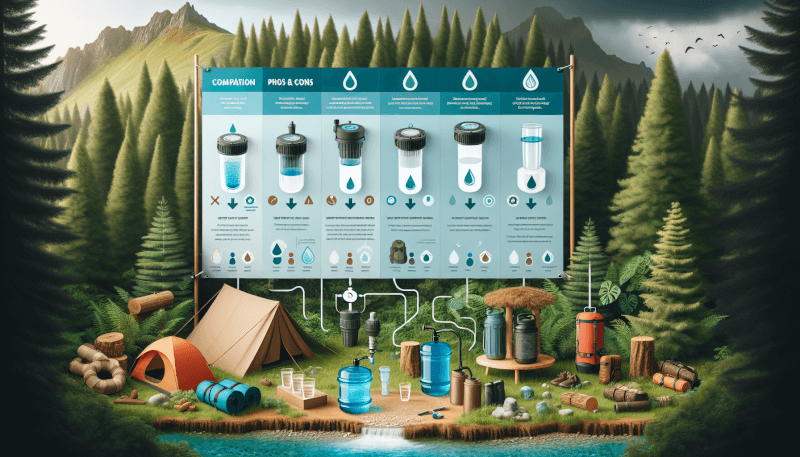
Ensure Durability and Reliability
Consider the Material and Build Quality
To ensure your water filtration system can withstand the rigors of camping, consider the material and build quality. Look for systems made from durable materials that can handle outdoor conditions, including exposure to water, dirt, and impacts. Robust construction will help ensure that your filtration system remains functional and reliable throughout your camping trip.
Read Customer Reviews on Durability
Reading customer reviews can provide valuable insights into the durability and reliability of different water filtration systems. Pay attention to feedback regarding the system’s durability, especially from campers who have used the system in similar outdoor environments. Real-life experiences can help you gauge the system’s ability to withstand the demands of camping.
Choose Reliable and Resilient Filtration Systems
Based on the material, build quality, and customer feedback, choose a water filtration system that is known for its reliability and resilience. Selecting a system that you can trust to perform consistently throughout your camping trip will give you peace of mind, knowing that you can rely on it for safe drinking water in various outdoor conditions.
Check for Certification and Testing
Look for Approved Certifications
When choosing a water filtration system, it’s important to look for products that have obtained approved certifications. These certifications ensure that the filtration system has undergone rigorous testing and meets certain standards for water filtration. Look for certifications from reputable organizations such as the NSF (National Sanitation Foundation) to ensure the system’s effectiveness and safety.
Check if Filters Meet Standards
In addition to overall system certifications, check if the individual filters used in the system also meet specific standards. Some filters may be certified for their ability to remove certain contaminants, giving you added assurance that they are suitable for your camping trip needs. Look for filters that have been tested and verified to meet relevant water quality standards.
Consider Testing Results for Added Assurance
Beyond certifications, consider testing results or data provided by the manufacturer. This information can give you more insight into the filtration system’s performance and its ability to remove contaminants effectively. Manufacturers that openly share testing results demonstrate transparency and provide additional assurance regarding their system’s capabilities.
In conclusion, choosing the right water filtration system for your camping trip requires careful consideration of various factors. Assessing the water source, understanding filtration methods, estimating water needs, evaluating portability, reviewing filter lifespan and maintenance requirements, understanding filtration rates, considering water taste and odor, accounting for cost and budget, ensuring durability and reliability, and checking for certification and testing are all essential steps in making an informed decision. By following these guidelines, you can select a water filtration system that will provide you with clean and safe drinking water throughout your camping adventure.
